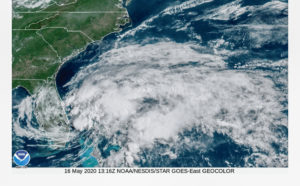 The world has seen a dramatic rise in natural disasters, global health crises, and political instability in recent years. From devastating wildfires in California to unforeseen pandemics and supply chain breakdowns, the message is clear: being prepared is no longer optional, it’s essential. The pace and unpredictability of today’s world require individuals, families, and communities to take preparedness seriously.
The world has seen a dramatic rise in natural disasters, global health crises, and political instability in recent years. From devastating wildfires in California to unforeseen pandemics and supply chain breakdowns, the message is clear: being prepared is no longer optional, it’s essential. The pace and unpredictability of today’s world require individuals, families, and communities to take preparedness seriously.
A World in Constant Flux
The 21st century has introduced an era of hyper-connectivity and climate unpredictability. Global warming is causing more frequent and severe weather events, and even regions once considered “safe” are now experiencing floods, hurricanes, or droughts. At the same time, global interdependence means that events on one side of the planet can trigger effects across the globe, whether it’s a conflict, economic downturn, or pandemic.
The COVID-19 pandemic was a wake-up call for many. It exposed the fragility of modern systems and the reality that even the most developed nations can struggle when caught unprepared. This experience underscored the critical importance of proactive readiness at all levels of society.
Readiness Starts at Home
Emergency preparedness doesn’t require military-grade stockpiles or high-tech bunkers. Instead, it begins with simple, practical steps anyone can take. A basic emergency kit with food, water, medication, flashlights, and batteries can make all the difference during a power outage or evacuation. Creating a family communication plan, knowing local evacuation routes, and keeping essential documents accessible are additional steps that offer peace of mind.
Just as importantly, mental readiness plays a vital role. Being calm, informed, and capable of making quick decisions in stressful situations can significantly influence outcomes. This kind of preparedness is built through education, drills, and discussing potential emergencies with loved ones openly.
Supporting Systems That Protect Us
While personal readiness is crucial, community-wide preparedness and support systems can save countless lives. Organizations like the American Red Cross work tirelessly to aid people in crisis. Their disaster relief service responds to hurricanes, floods, fires, and other emergencies across the United States and around the world. These organizations rely on donations and volunteers who are ready to step in when disaster strikes.
By contributing time or resources to these efforts, individuals can help ensure that emergency responses are swift and effective. Preparing for the unexpected isn’t just about self-preservation, it’s about building resilient communities that can withstand and recover from hardships.
The Cost of Complacency
Ignoring the need for readiness can have severe consequences. When disasters strike, unprepared individuals often face greater property, health, and even life losses. Beyond the personal toll, the strain on public services increases dramatically when citizens are unprepared. Hospitals become overwhelmed, emergency responders are stretched thin, and recovery times lengthen.
Moreover, businesses that fail to plan for disruptions often suffer irreparable damage. Risk management and continuity planning have become essential parts of sustainable operations, from cyberattacks to natural disasters.
How to Take the First Step
The good news is that it’s never too late to get prepared. Start by evaluating your specific risks—do you live in a flood zone, near a fault line, or in a fire-prone area? Use that information to shape your plan. Talk with family members, review resources from trusted organizations, and consider signing up for local alerts or training programs. Even small steps, like assembling a go-bag or downloading a first aid app, can put you miles ahead when an emergency hits.
In a world where uncertainty is the only certainty, readiness is your greatest asset. The time to prepare isn’t tomorrow, it’s today.


